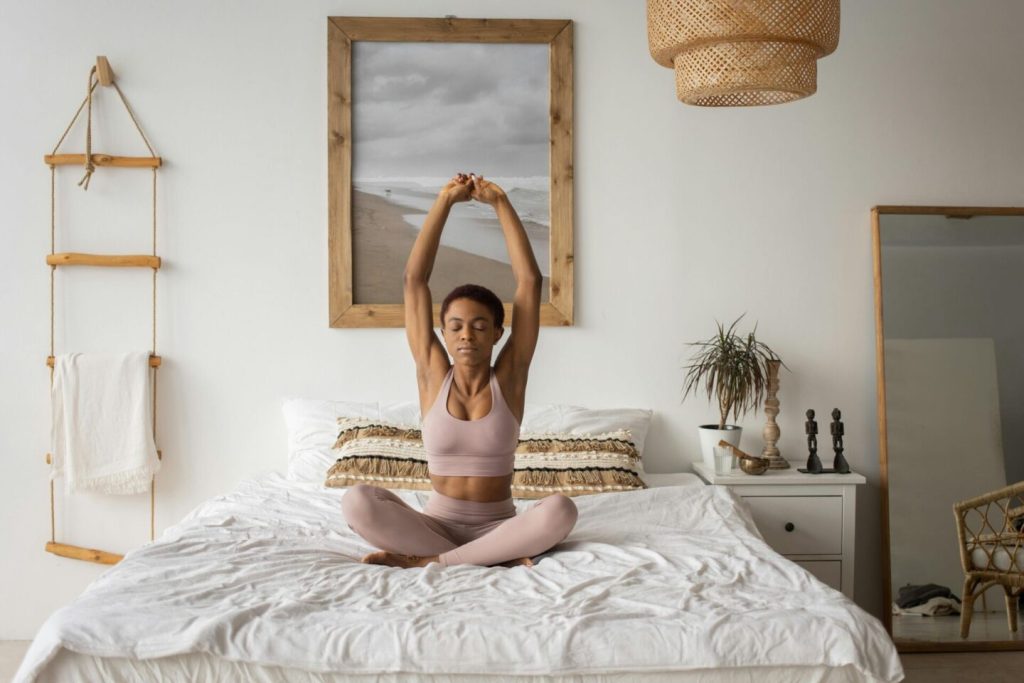A restful night’s sleep is essential for overall health and well-being, but for many people, achieving nighttime comfort can be a challenge. Whether due to physical discomfort, anxiety, or specific conditions like incontinence, sleep disruptions can affect mood, energy, and quality of life. Thankfully, there are practical solutions that can enhance nighttime comfort and promote uninterrupted sleep.
This guide explores effective strategies for achieving nighttime comfort and well-being, helping individuals wake up refreshed and ready for the day ahead.
The Importance of Nighttime Comfort
Sleep is a restorative process, allowing the body and mind to recover and prepare for the next day. However, when discomfort interferes, it can lead to poor sleep quality, affecting physical and mental health. Common issues that disrupt nighttime comfort include:
- Chronic pain or physical discomfort
- Temperature regulation difficulties
- Stress and anxiety
- Sleep disorders
- Incontinence or other health conditions
Addressing these issues proactively can significantly improve sleep quality and overall well-being.
1.Invest in the Right Bedding
The foundation of nighttime comfort is a good-quality mattress and bedding. Consider the following tips:
- Choose a Supportive Mattress: A mattress that supports your body’s natural alignment can reduce discomfort and prevent aches and pains. Memory foam or hybrid mattresses are popular choices for their ability to contour to the body.
- Use Comfortable Pillows: Pillows tailored to your preferred sleep position can improve spinal alignment and reduce strain. For example, side sleepers may benefit from thicker pillows, while back sleepers might prefer thinner options.
- Opt for Breathable Bedding: Lightweight, breathable materials like cotton or bamboo help regulate body temperature and prevent overheating during the night.
2.Maintain Optimal Room Conditions
‘
Creating the right environment is essential for a comfortable night’s sleep. Consider the following:
- Temperature: Keep your bedroom cool, ideally between 16°C and 18°C, to promote restful sleep. Use a fan or adjust bedding layers as needed.
- Lighting: Minimise exposure to bright light in the evening by using dim lighting and blackout curtains to block outside light.
- Noise Reduction: White noise machines or earplugs can help drown out disruptive sounds, creating a peaceful sleep environment.
3.Address Incontinence with Effective Products
Incontinence is a common issue that can disrupt nighttime comfort. For those managing this condition, finding the right products is essential to ensure a restful night. Disposable adult nappies are a reliable solution, offering high absorbency and secure protection to prevent leaks and maintain hygiene.
When selecting incontinence products for nighttime use, consider the following:
- Absorbency: Opt for products with high absorbency levels to handle prolonged wear.
- Comfort: Look for soft, breathable materials that minimise skin irritation.
- Secure Fit: Ensure the product fits snugly to prevent leaks without feeling restrictive.
Using high-quality disposable adult nappies can help individuals manage incontinence confidently, allowing for uninterrupted sleep and improved well-being.
4.Adopt Relaxation Techniques
Stress and anxiety are significant contributors to poor sleep. Incorporating relaxation techniques into your evening routine can calm the mind and prepare your body for rest:
- Deep Breathing: Practising slow, deep breaths can reduce stress and lower heart rate.
- Meditation: Guided meditations or mindfulness exercises help clear the mind and focus on the present.
- Progressive Muscle Relaxation: Tense and release each muscle group to ease physical tension and promote relaxation.

5.Establish a Bedtime Routine
A consistent bedtime routine signals to your body that it’s time to wind down. Here are some ideas to include in your routine:
- Avoid Screens: Reduce exposure to blue light from phones, tablets, and computers at least an hour before bed. Blue light can suppress melatonin production, making it harder to fall asleep.
- Read a Book: Choose a calming book or listen to soothing music to transition into sleep mode.
- Take a Warm Bath: A warm bath or shower before bed can relax muscles and promote a sense of calm.
6.Stay Hydrated but Balanced
Dehydration can cause discomfort during the night, but drinking too much water before bed can lead to frequent bathroom trips. Aim to stay hydrated throughout the day and reduce fluid intake an hour or two before bedtime.
7.Use Supportive Accessories
For individuals dealing with specific conditions, supportive accessories can enhance nighttime comfort:
- Wedge Pillows: These can alleviate acid reflux, snoring, or back pain by elevating the upper body.
- Body Pillows: Ideal for side sleepers, body pillows provide additional support and alignment.
- Cooling Pads: For those who tend to overheat, cooling pads or gel-infused toppers can help maintain a comfortable temperature.
8.rioritise Skin Care and Hygiene
Nighttime is the perfect opportunity to care for your skin, especially if you use incontinence products. Cleanse the skin thoroughly before bed and apply a gentle moisturiser to keep skin hydrated and healthy. If using disposable adult nappies, ensure they are changed regularly to prevent irritation and maintain comfort.
9.Stay Active During the Day
Engaging in regular physical activity can improve sleep quality and make it easier to fall asleep at night. Aim for at least 30 minutes of moderate exercise most days, but avoid vigorous activity close to bedtime, as it can be stimulating.
10.Seek Professional Support When Needed
If nighttime discomfort persists despite your best efforts, consult a healthcare professional. Sleep disorders, chronic pain, or anxiety may require specialised treatment or interventions. Don’t hesitate to seek support to address these challenges effectively.
Conclusion
Achieving nighttime comfort and well-being is essential for overall health and quality of life. By investing in the right bedding, creating a conducive sleep environment, and addressing specific issues like incontinence with solutions such as disposable adult nappies, individuals can enjoy restful, rejuvenating sleep.
Incorporate relaxation techniques, establish a bedtime routine, and seek professional advice when necessary to optimise your nighttime experience. With the right strategies in place, you can wake up each morning feeling refreshed, energised, and ready to take on the day.




